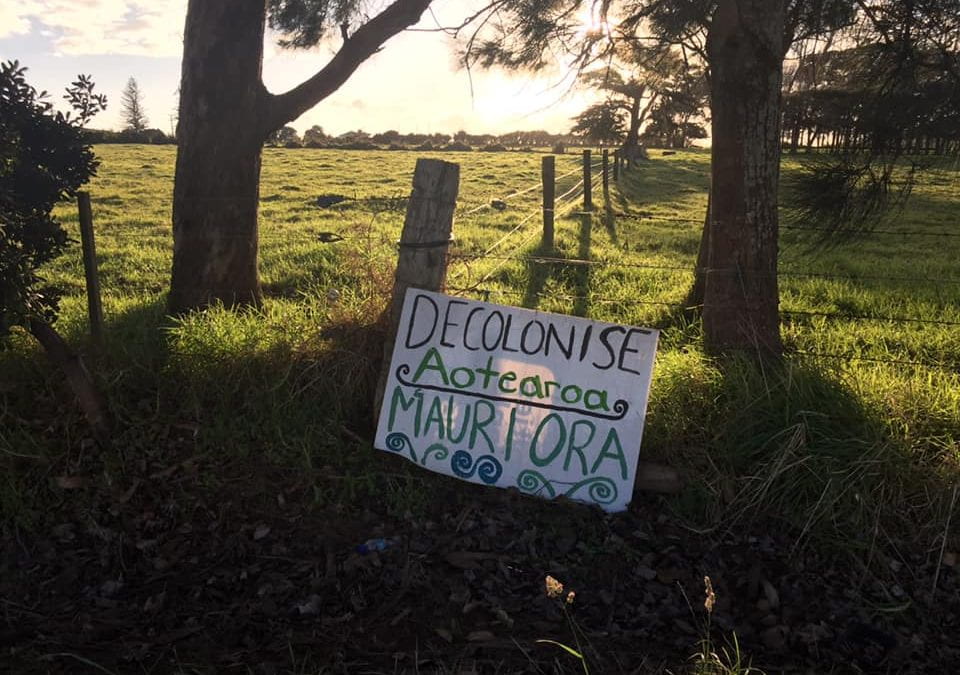By Ocean Ripeka Mercier (Ngāti Porou)
Many writers only loosely define what they mean by it, while others use it as a general black box for addressing the negative impacts of colonisation upon Indigenous peoples.
Like colonisation, decolonisation is a huge and amorphous project. Some commentators and workers on decolonisation will jump into a room and start the clean-up without stopping to think about the bigger picture: what’s going on next door and in the project as a whole. The upshot of this is that a reader of decolonisation literature is generally assumed to know what is meant by ‘decolonisation’. Many writers only loosely define what they mean by it, and others use it as a general black box for addressing the negative impacts of colonisation upon Indigenous peoples.
Problems abound. As Brendan Hokowhitu of the University of Waikato puts it, decolonisation is a “worthy project, yet we must at least question the semantics of the project of ‘decolonisation’; what does that actually mean and, if we could ever define it, is it actually possible?”
A worthy project, a tricky thing to define and perhaps even unrealisable: how the word ‘decolonisation’ is understood in different parts of the world will depend on the specific local relationship between colony and colonised. The online Oxford English Dictionary defines it as ‘the withdrawal from its former colonies of a colonial power; the acquisition of political or economic independence by such colonies’. This withdrawal may have been voluntary, or forced by social, political and environmental pressures. Other definitions of ‘decolonise’ include ‘to grant independence to a colony’, ‘to allow [a colony] to become self-governing or independent’ and ‘to free from colonial status’.
The Merriam-Webster Dictionary notes that the word’s first known use was in 1963. While the term may have an uncertain but relatively recent provenance, decolonisation itself is not a new thing, as many authors state. The kinds of decolonisation which involve a technical independence and freedom have been discussed by authors such as Frantz Fanon and Ngũgĩ wa Thiong’o. These states of autonomy and independence tend to occur after a literal removal of the colonial power from the colonised nation state. Many northern nations – particularly Great Britain, France, Portugal and Belgium, as well as the United States – from the sixteenth to nineteenth centuries colonised different parts of Africa, Asia and the global south, some of which went on to be decolonised, largely in the twentieth century.
The central African country Cameroon, for instance – variously occupied as German Kamerun, French Cameroun and British Cameroons – gained independence from its British and European colonisers in 1960–61, after four decades of struggle and resistance. Or take Indonesia: colonised by the Dutch as the Dutch East Indies in the 1800s and recognised as independent in 1949. Closer to home, decolonisation of Pacific nations has also occurred in the past century: Samoa gained independence in 1962, Fiji in 1970, Vanuatu in 1980.
This process sometimes leaves states in a colonised mindset, with ongoing differences and division. In the case of Indonesia, the decolonised became colonisers in turn, taking over the colonial role in nations such as Timor Leste and West Papua. As writer and critic Lana Lopesi has suggested, a colonised mind leads to colonization of others. Similarly, artificial lines drawn on maps by British and European colonisers may bear little resemblance to traditional boundaries and homelands, leaving newly independent states made up of many different peoples – some allies, some rivals, some forcibly relocated from elsewhere to provide labour for colonisers. Citizens of states with these differing groups of people, such as Nigeria or Fiji, may thus remain locked in contestation over power. And though independent in name, newly decolonised states can struggle for economic independence, relying on old colonial relationships for aid, development and trading partners. This form of decolonisation, then, is far from a true reversal of colonisation or rehabilitation from colonial ills, though it may be a heartening and necessary first step.
For our purposes, there are other problems with it as a model. ‘Independence’ decolonisation has been most often applied to countries where the coloniser population was small or temporary, where the Indigenous peoples remained in the majority. In settler countries like Canada, Australia and Aotearoa New Zealand, the reality is different and more complex. The above definitions of decolonisation speak of a literal removal of the colonising people and the powers that uphold colonial structures.
Extract from Imagining Decolonisation published by Bridget Williams Books. You can find more about BWB and this book here.
Ocean Ripeka Mercier is a Senior Lecturer in Māori Studies at Victoria University.
Photo Credit: Sam Smith
Disclaimer: The ideas expressed in this article reflect the author’s views and not necessarily the views of The Big Q.
You might also like:
Are New Zealand’s colonial institutions pushing Māori toward a life of crime?
Q+A: Are our indigenous communities really free?

